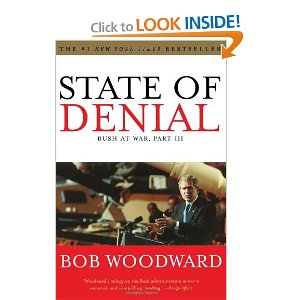
Published in 1982, Relevant Today and Proven with Time,
This is such a book. It focuses on five “driving trends”: energy, climate, food, the economy, and values. The latter is especially important, as we discover that our failure to adapt our educational systems, and our failure to *have* national values, insisting on government being “neutral,” has actually made us hollow and vulnerable.
The set the stage by listing key factors that today are much more worse: diverse social values, a turbulent world devoid of the stabilizing influence of the Cold War, slow energy growth, burdensome debt (who could have imagined what Bush-Cheney would do), an aging population, slowing economic growth, a social legacy of distrust (which also increases the costs of doing business), no end to crime (now $2 trillion a year, which along with $2 trillion in waste, makes the remaining $5 trillion in legal economics seem much devalued), continuing environmental degradation, rising level of disease and related costs, and deterioration of soil (meaning topsoil, which pesticides have now poisoned).
The authors had no way of knowing in 1982 that in 2006 the High Level Threat Panel of the United Nations would identify the ten global threats as poverty, infectuous disease, environmental degradation, inter-state conflict, civil war, genocide, other atrocities, proliferation, terrorism, and transnational crime. For the cost of this book in 1982, we could have saved a quarter century of loss had the adults at the time been willing to listen.
In the manner made so internationally respected by Peter Schwartz, who is one of the three authors, the book then posits a positive, middle of the road, and negative future for each of the five driving trends, and from that combination, then derives the seven scenarios that are ours to choose from:
1) The Official Future
2) The Center Holds
3) Mature Calm
4) Chronic Breakdown
5) Apocalyptic Transformation
6) Beginnings of Sorrow
7) Living Within Our Means
Each is discussed in detail, including tables showing specific countries likely to prosper or decline, and specific occupations likely to be in demand or face extinction.
The book ends with a discussion of cultural economics and why values matter, and provides at the end three tables of values as the authors anticipated they would be among a Right Wing, a Left Wing, and a Transformation Alternative. The latter, contrary to my expectations, is not a balanced reasoned transpartisan value system, but one that romanticizes some aspects and ignores other (e.g. crime and national-level threats including poverty).
The author first posit an emphasis on decentralization (today I use the word localization) and also address the dangers of moving so far in favor of individualism that the good of the group is lost sight of.
The bibliography is as fine a list of important books from the decade preceeding the publication of this book as to be worthy of study on its own merits.
I put the book down lamenting how ill-suited our current systems of governance and business are to the need for listening to reasonable people who can actually forecast the future and warn us of the dire consequences. Peak Oil was well known in 1974-1979, but because of the values in place, the Senate and the oil companies felt they could ignore the problem and deceive the majority of the people–the many who did not read or think about such matters, postponing the day of reckoning, which is today, and dramatically reducing our flexibility while increasing the cost to future generations of the remedial measures.
This book is still relevant, and indeed all the more enjoyable in the context of the two latest books by Paul Hawkins and friends, and the forthcoming book “Blessed Unrest.” I was fortunate to buy this book from a third party through Amazon, and am quite pleased to have it for its current value as well as its tangible demonstration that we did indeed have smart people a quarter century ago who knew exactly where we would end up if we continue with “the official story” of endless growth without regard to the “natural capital” of the planet.
Click Here to Vote on Review at Amazon,
on Cover Above to Buy or Read Other Reviews,
I Respond to Comments Here or There











